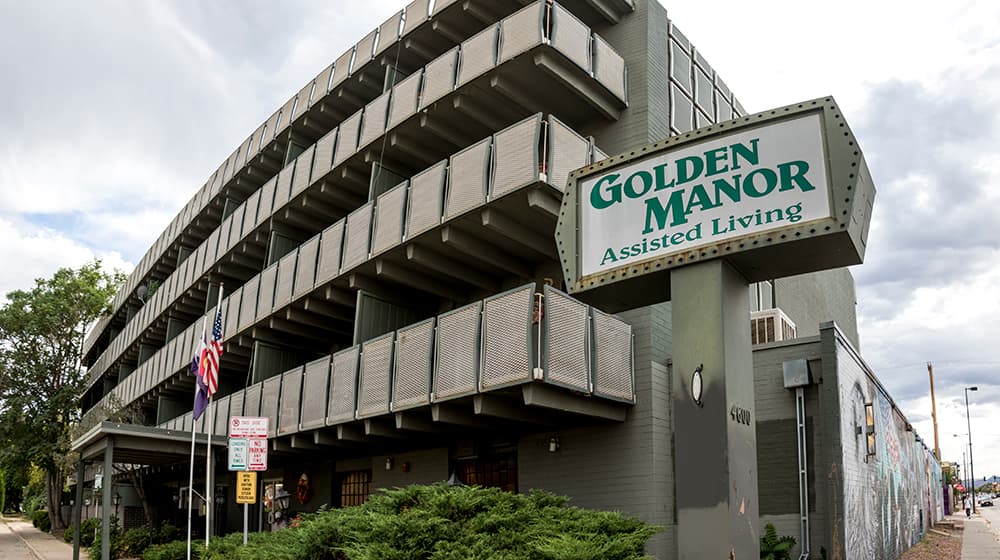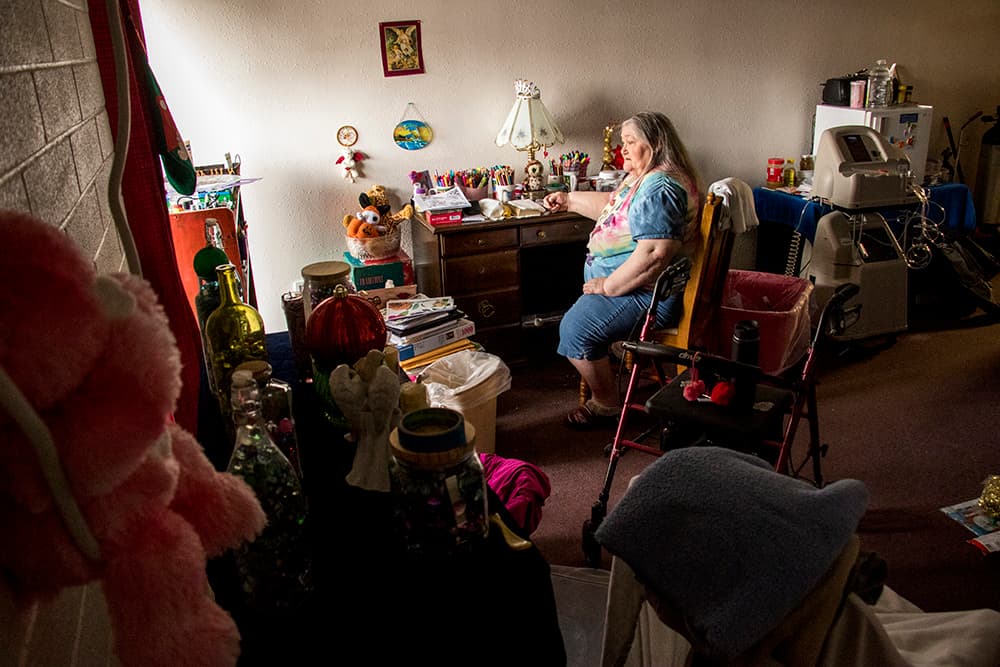
On Jan. 25, the residents of Golden Manor Assisted Living met one of the people who had bought their home.
At an emotional gathering in the wood-paneled dining room, they asked what would happen to them. Some are elderly, others have disabilities, and few were confident that they could easily find another home.
Four months later, the old motel building stands empty on West Colfax. Working with the new owner, a network of nonprofit and government employees had found new homes for all 66 residents of Golden Manor.
Now, Ben Hrouda and his partners are preparing to start redevelopment of 4600 West Colfax Avenue, as BusinessDen first reported.
They'll keep the same general floor-plan, but they'll refurbish the old rooms into 57 studios and seven singles. Ranging from 360 to 750 square feet, they'll sell from the high $100,000s up to the high $300,000s.
Hrouda acknowledged that the announcement of his team's development plans provoked some intense anger.
"That was the reaction that people had. After that, I think their reactions kind of became less adverse, once they understood what we were doing, and how we were doing it, and what we were providing for the residents," he said. At the January meeting, he had said that his team would extend deadlines and make compromises to ensure that no one was left homeless.
The renovated units will be less expensive than other condos and town-homes in the area, which is near Sloan's Lake.
"I’m a fourth-generation native. I grew up here. I know how hard it is to buy anything in town," Hrouda said this week. "We thought that there was a market for this type of product."
The lower prices are possible because the developer is keeping the old building rather than building new, Hrouda said. The units are also, of course, relatively small and costly on a square-foot basis.
Councilman Rafael Espinoza had unsuccessfully urged the city government to purchase the property before it was sold.
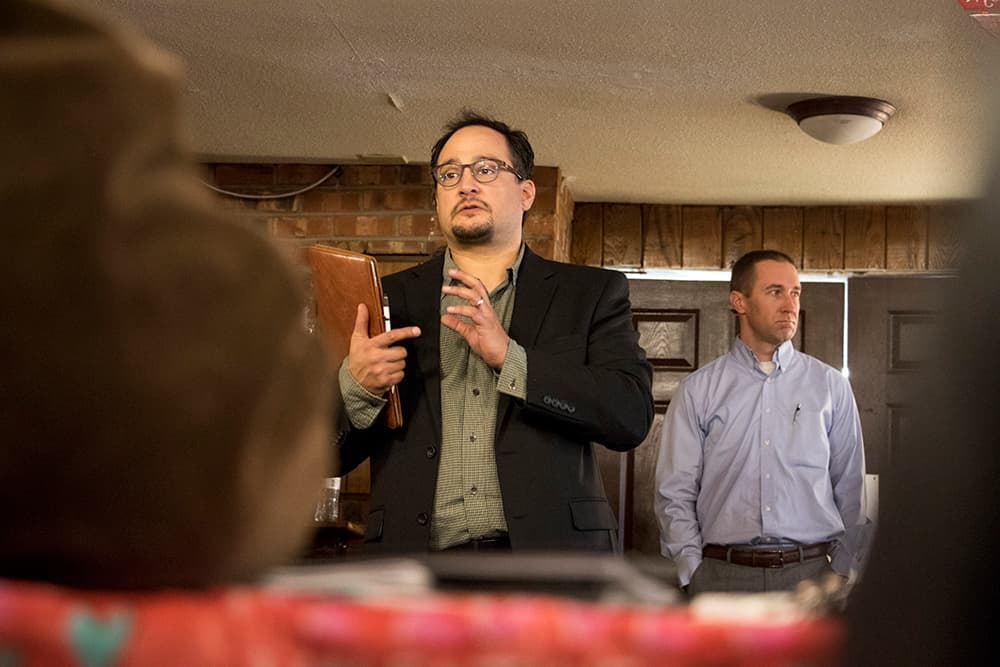
The relocation effort was a success by several measures — but it was painful, too.
While residents feared that couples would be split up, but that did not happen, according to Tina Watson, a long-time employee of the community.
Most of the residents stayed within the Denver metro, but some left to be with family in other areas, according to Shannon Gimbel, ombudsman program manager for the Area Agency on Aging.
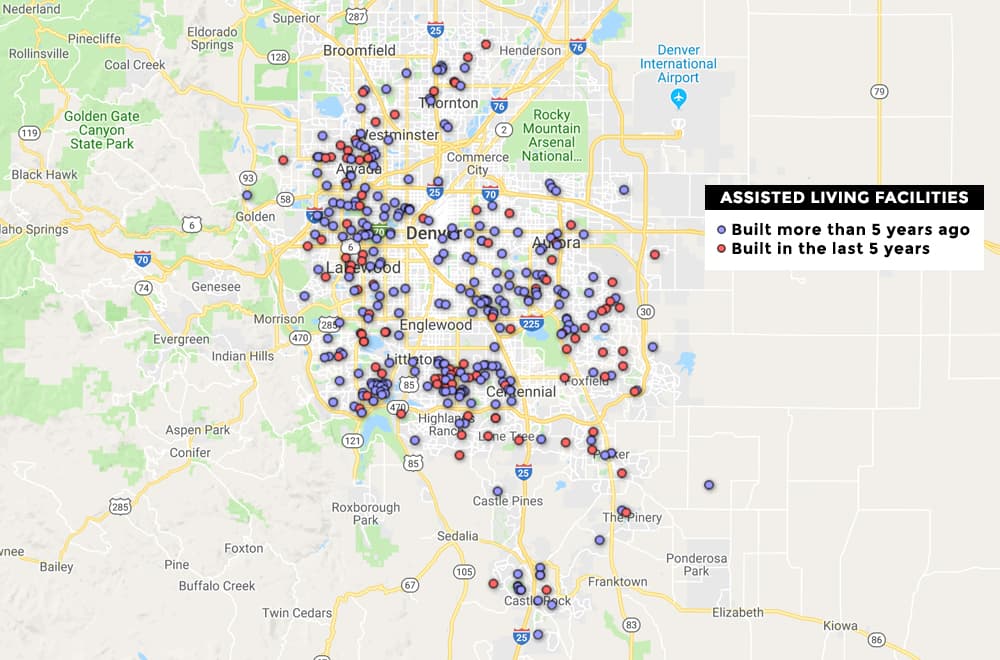
Denver still has by far largest the number of assisted-living beds in the metro area, totaling about 3,400, according to an analysis of Colorado Department of Public Health and Environment data by my colleague, Kevin Beaty.
Most of the recently built assisted-living facilities are in the suburbs, especially Aurora. Though Denver has built fewer individual facilities than surrounding cities, they tend to be much denser. Denver has built just eight facilities in the last five years but those account for 441 beds, more additions than any in any other city.
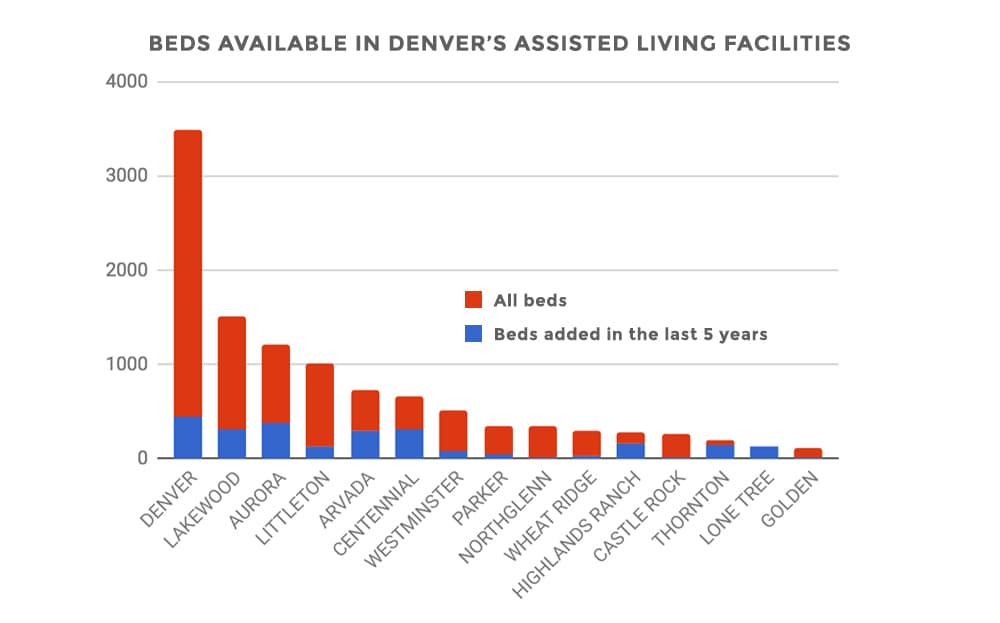
"The move for the clients, it went great," Watson said.
Clients with mental-health issues, and younger people, had a hard time finding new placement, Watson said. Ultimately, she said, the last stragglers found placements in group homes that have recently opened in the area, she said.
"Sometimes, you have to let an end be an end. Me being upset with it is because of the clients. The diversity of people that we have here, and the structure — that they were able to take care of themselves, their mental health — yeah, I’m mad about that," she said.
"I worry. Is this person able to go and vent (their emotions) this way at the other facility? Is this person able to wash their clothes and eat snacks?" she continued. "It was a big loss -- not for us, I don’t think, as employees. It was a bigger loss for clients. That building had to be there for people. I never imagined something like that was ever going to happen. Never."
And Watson herself was scrambling for a new home and a new job.
"I was going to go back to Kansas where I was from. The rent here is too much. So I ended up buying a fifth wheel (mobile home)," she said. "I’m living with my sister, in her parking lot."
Watson, who worked at Golden Manor 27 years, doesn't plan to return to working in assisted living. "It takes too much out of you," she said.
Instead, she said, she's going to start school for the culinary arts.

